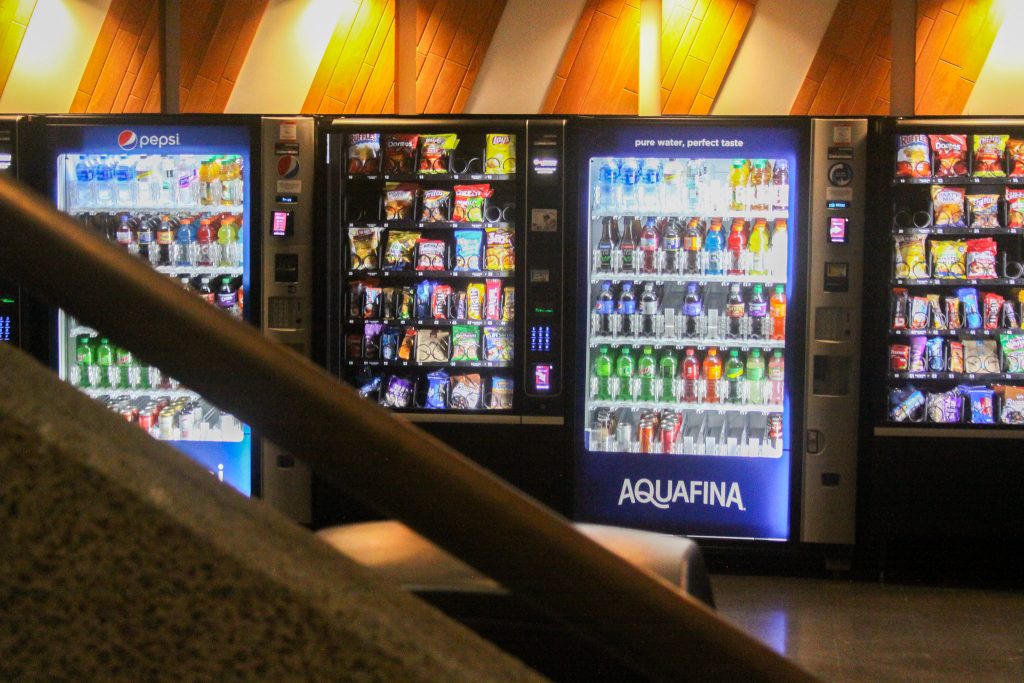Through a new collaborative initiative, Binghamton University students may soon have a more accessible way of obtaining emergency contraceptives.
According to Luca Cassidy, the vice president for student success and a junior majoring in economics, the idea originated at a meeting of interested student groups, organized by the Latin American Student Union (LASU) after the leaked Supreme Court opinion draft overturning Roe v. Wade. Originally a fund making Plan B free to students was proposed, leading Cassidy, the then-vice president of the College Democrats, to meet with University administrators to discuss the idea. The idea shifted to a vending machine when stakeholders realized that access was more of a barrier than price. Students will be charged $10 for the emergency contraceptives, contingent on the ability to find a vendor.
Plan B is taken the morning after having unprotected sex and prevents pregnancy by delaying ovulation. The name brand Plan B One-Step generally costs between $40 to $50, while generic offerings such as Take Action, Preventeza and MyChoice generally cost about $11 to $45. Purchase of Plan B or any of its generic forms is legal in all 50 states.
Sophia Panos, the president of Planned Parenthood Generation — a proposal stakeholder — and a senior majoring in integrative neuroscience, described the motivations behind the plan.
“Plan B is extremely expensive, and while Decker [Student] Health Services [Center (DSHSC)] sells Plan B for $10, most students were either unaware of this, unwilling to schedule an appointment with [DSHSC] or simply needed Plan B when [DSHSC] was not open,” Panos wrote in an email. “Access to emergency contraception, whenever needed, is in huge demand, especially on college campuses. Plus, with these machines in place, access to emergency contraception can also be much more discrete, helping break down barriers and encouraging its use.”
In addition to Cassidy and PPGen, the plan has been spearheaded by the Road Map Interns, a program relaunched by Nora Monasheri, the current BU Council representative and a first-year graduate student studying business administration. A May 2023 presentation said that the medication would be purchased through students’ BU ID cards, which would track student use and require clearance from a medical professional after the third swipe. Monasheri said that overcoming the accessibility barrier was paramount, as sporadic public transportation would impact Plan B’s effectiveness.
A survey sent to the student body about the initiative garnered 1,417 responses. Of respondents, 45.18 percent had previously purchased Plan B, the average cost per student was $74.09 and 83.5 percent were unaware of the medication’s availability at Decker. 88 percent of students surveyed agreed that a Plan B vending machine would benefit the University community.
Monasheri added that state lawmakers have been pushing for increased access to related medication in the legislature.
“This challenge has not only been brought by students but also New York state lawmakers [at] the beginning of this year,” Monasheri wrote in an email. “These lawmakers are calling to expand access to emergency contraception for CUNYs and SUNYs, and it’s [making] its way through the State Assembly … If so, it would be super cool for [BU] to set a precedent and be one of the first public universities in [New York state] to have a contraceptive vending machine.”
Four years before the Supreme Court’s landmark decision, New York state passed the Reproductive Health Act in 2019, which enshrined abortion rights into state law. In 2023, Gov. Kathy Hochul signed a bill allowing pharmacists to dispense over-the-counter contraceptives and ensure access to abortion medication at public colleges and universities in the state.
Thirty-nine universities in 17 states currently have contraceptive vending machines on their campuses. Stanford University has a vending machine that is subsidized by the administration, which sells Plan B for $25. The University of Washington sells emergency contraception for $12.70 and others sell it for as low $7.
Iris DeFino, a junior majoring in political science, expressed support for the vending machine initiative.
“I have a lot of faith that making Plan B convenient and affordable will help students feel safer and experience less stigma around getting it, while also giving them the peace of mind that there are easy options on campus for them at all times,” DeFino said. “Additionally, for students who have experienced sexual assault or are in toxic relationships, getting Plan B without having to travel off campus helps to make the process less daunting and more discrete for their safety and comfort.”
Editor’s Note (10/27): This article has been edited to remove information about where funding will come from, as that information was not confirmed. Pipe Dream regrets the error.



